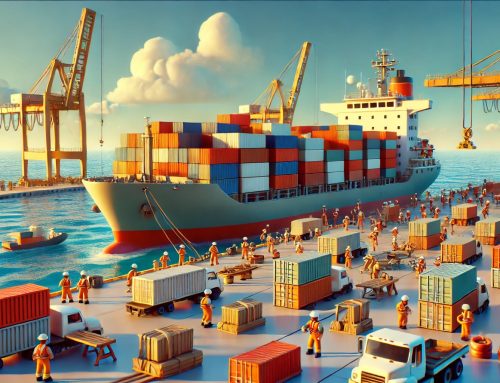August 3, 2023
The Istanbul Chamber of Industry (ICI) Turkish Manufacturing Sector Export Climate Index remained above the no-change mark 50.0 in June, signalling continued improvement in the export climate of Turkish manufacturers. But the Index eased to 51.1 in June from 52.3 in May, showing a moderate progression in demand conditions and the slowest pace of improvement in the last five months.
The economic activity in German remained unchanged with a contraction in the manufacturing and construction sectors balancing out the growth in the services sector. Growth decreased in Italy and France, while slowed in the United Kingdom, Spain and Greece. Growth also lost momentum in the United States. The Middle East, particularly Saudi Arabia and Qatar, continued to be the main source of demand growth for Turkish exporters in June. All of the BRIC countries also remained in the expansion zone.
The Istanbul Chamber of Industry (ICI) Türkiye Manufacturing Export Climate Index, which measures the business conditions in the key export markets of the Turkish manufacturing sector, released the results of the index for June 2023. In the index, the figures above the 50.0 no-change mark signals an improvement in the export climate, while the figures below signals deterioration.
The Istanbul Chamber of Industry Turkish Manufacturing Sector Export Climate Index remained above the no-change mark 50.0 in June, signalling continuity of improvement in the export climate of Turkish manufacturers. But the Index eased to 51.1 in June from 52.3 in May, showing a moderate progression in demand conditions and the slowest pace of improvement in the last five months.
No change in Germany, slower pace in the US
Economic activity in Germany, the largest export market for Turkish manufacturers, remained unchanged in June, with a contraction in the manufacturing and construction sectors balancing out the growth in the services sector. However, some European countries experienced a decline in production, including Italy, France, the Netherlands, Poland, etc.. The most significant contraction was in Czech Republic and Austria. Growth increased in the United Kingdom, Spain and Greece at the end of the second quarter, but slowed in all three countries.
Similarly, growth has also lost momentum in the United States, reaching its lowest rate since March.
Strong growth in the Middle East, China and India
The Middle East continued to be the main source of demand growth for Turkish exporters in June. The UAE experienced the strongest economic activity growth in the last 10 months. Among the countries covered by the survey, the strongest expansion was recorded in Saudi Arabia, which grew at the fastest pace since March 2015. Production also increased strongly in Qatar, while Lebanon achieved growth for the first time in more than a decade. Egypt was the only country where activity contracted among the economies of the region monitored under the survey.
Output growth in Russia came in strong and at the highest pace in three months, while economic activity in India also continued its rapid growth trend. All of the BRIC countries, namely Brazil, Russia, India and China also remained in the expansion zone.
Commenting on the Istanbul Chamber of Industry Türkiye Manufacturing Export Climate Index, Andrew Harker, Economics Director, S&P Global Market Intelligence, said:
“While the export climate for Turkish manufacturers continued to improve in June, signs of an increasing slowdown in many export markets, particularly in Europe and North America, raise concerns about the sustainability of the strengthening external demand trend. On the other hand, the Middle East, the only region where no signs of a slowdown are observed, continues to be a significant source of demand amid a period of deceleration in other parts of the world.”
Source: Istanbul Chamber of Industry
Legal Notice: The information in this article is intended for information purposes only. It is not intended for professional information purposes specific to a person or an institution. Every institution has different requirements because of its own circumstances even though they bear a resemblance to each other. Consequently, it is your interest to consult on an expert before taking a decision based on information stated in this article and putting into practice. Neither Karen Audit nor related person or institutions are not responsible for any damages or losses that might occur in consequence of the use of the information in this article by private or formal, real or legal person and institutions.






